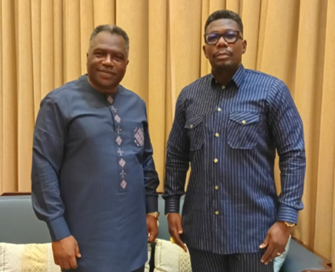Since the Liberia Institute for Statistics and Geo-Political Service (LISGIS) announced the closure of the 2022 National Housing and Population Census in January 2023, many persons have alerted that they were not enumerated during the process, thus questioning the accuracy of the announced results.
Article 39 of the 1986 Constitution gives authority to the National Legislature to cause a census to be undertaken every ten years. After the census, the lawmakers would then use results to analyze the population, project a threshold for constituencies and demarcate each county into districts per the set threshold.
In the event that the census is conducted in an election year, the National Elections Commission (NEC) is guided by these proceedings in order to conduct Constitutionally backed elections. Unfortunately, this is not the case with 2023.
Since the conduct of the census, LISGIS is yet to announce the full result, putting the date for the release of the final results to May. Because the results are incomplete, the National Legislature cannot analyze the results or make any demarcation; however, the National Elections Commission (NEC) has already released its election calendar and jumpstarted the voter registration process. Many have argued that this is in violation of the Constitution, with the Collaborating Political Parties (CPP) dragging the NEC to the Supreme Court for the violation.
In addition to the violation of Constitutional provisions, statisticians are questioning the credibility and numerical accuracy of the census.
Teakon J. Williams, a Project Management Professional (PMP), has noted that, globally, population increase is driven by a series of factors that includes a reduction in the death rate, an increase in the birth rate, migration, lack of family planning, and pull factors (job opportunities, educational pursuit, etc.), and that population growth in developing countries is mainly in urban areas that foster economic development. However, he said, the 2022 population census in Liberia showed high population growth for counties experiencing low economic activities, limited employment opportunities, little access to health, high prices due to limited road access, little access to markets, etc, a situation that brings into question the credibility of the entire census process.
According to Williams, in light of the increased trend in the population of Libera over the years, the publication of the 2022 Population Census reflecting an increased population was never going to be a surprise; however, the correlation of values with United Nations Population Fund (UNFPA), Worldometer, Population Pyramid and World Population Review, all at 5.3 million, compared to 5.2 million from LISGIS, leaves one to wonder whether survey personnel did not simulate the new population data based on the population growth rate (as opposed to actual counting) by LISGIS.
He argued that an analysis of variance showed a steady trend among Grand Bassa, Grand Cape Mount, Nimba, Rivercess and Sinoe; however, the rapid increase in population for Bomi, Bong, Grand Gedeh, Grand Kru, Margibi and River Gee is unprecedented and calls for serious concern. “What are the pull factors that drove this rapid increase?” he wondered.
“A critical look at these counties showed that they experienced high absolute poverty, food poverty, and extreme poverty (MFDP, 2018). These indicators are all push factors adverse to high population growth. Moreover, most of these counties (Grand Gedeh, River Gee, and Grand Kru) as part of the southeastern region of Liberia, are the highest users of contraceptives at 22% (LDHS, 2013). The mere fact that the reported counties with the least opportunities for migration, with little attraction for domicile, and with the highest use of contraceptives, will attract high population growth creates room for more questioning of the process,” William noted in his analysis.
“LISGIS needs to explain this variation in these numbers and the factors that inform the result. Data are not conflicted; they speak to each other. The report on contraceptive use, for example, is not speaking to the result provided by the LISGIS.
“There are queries that can be run to inform statistical data. These queries, when run, cannot validate the veracity or authenticity of the data provided by LISGIS. Statistics is not about politics. Liberia is a gullible society where academicians are seen as nothing but mediocrity is awarded. We need reliable information to make sound decisions. As it stands, there are valid reasons to question the preliminary findings,” Williams emphasized.







